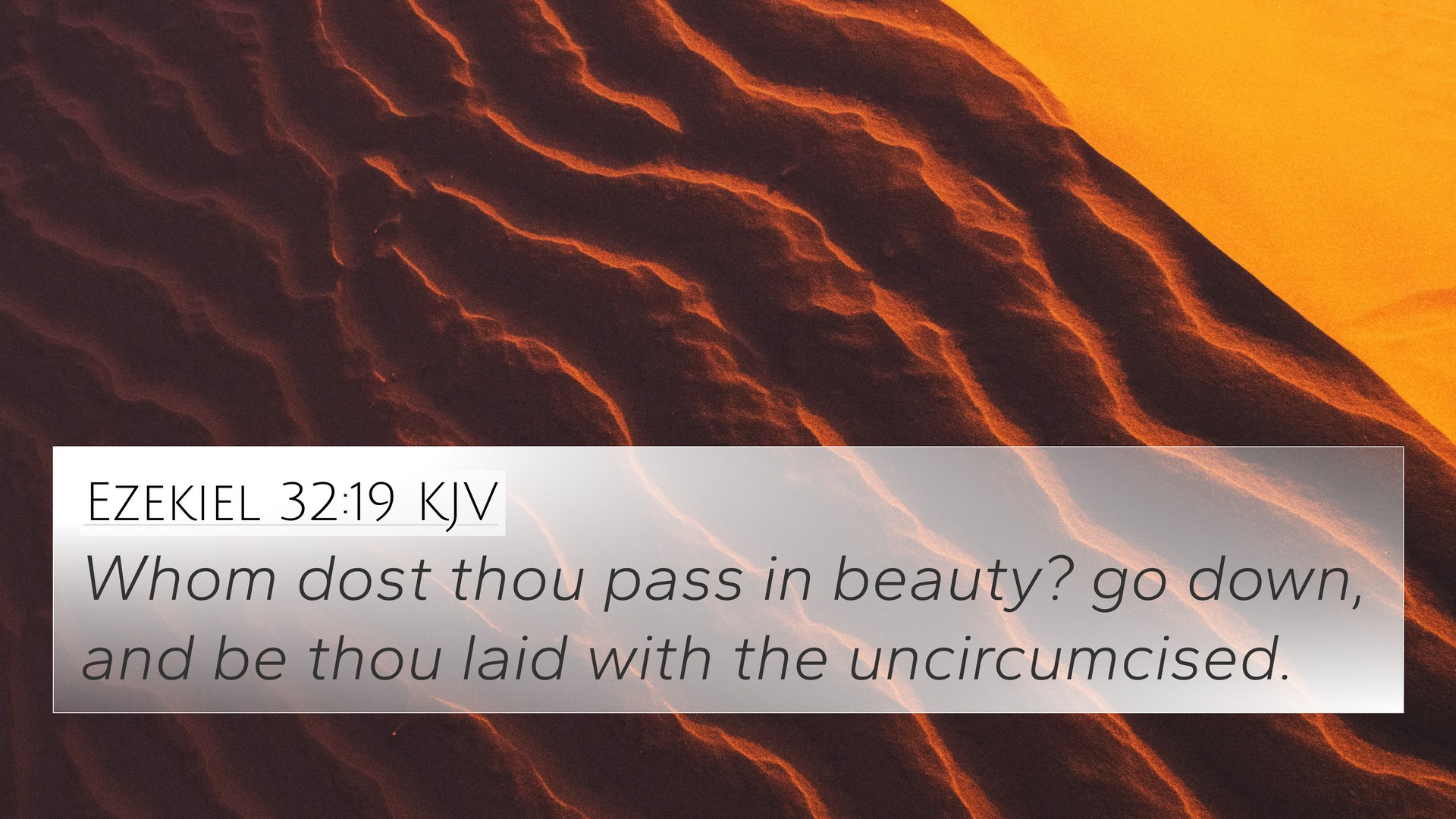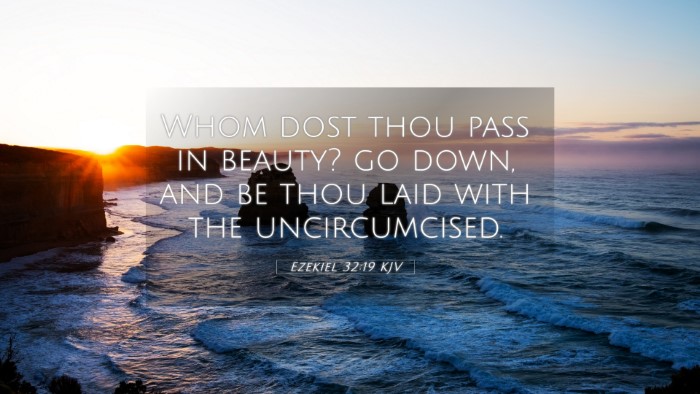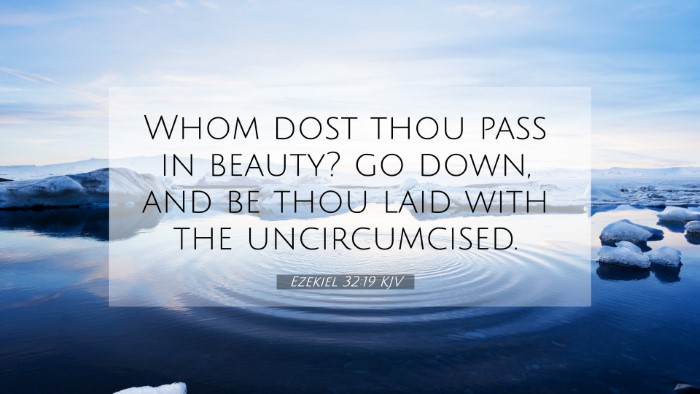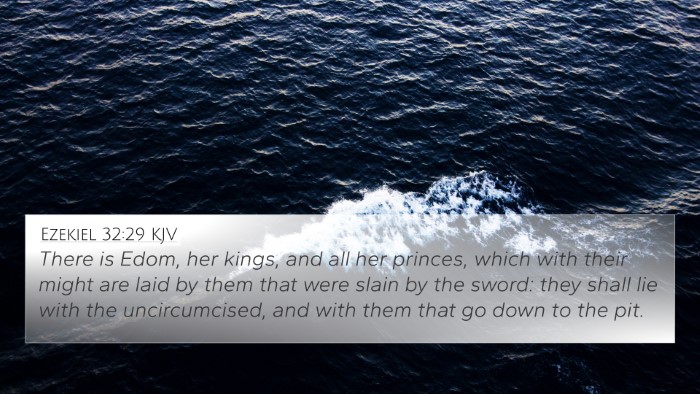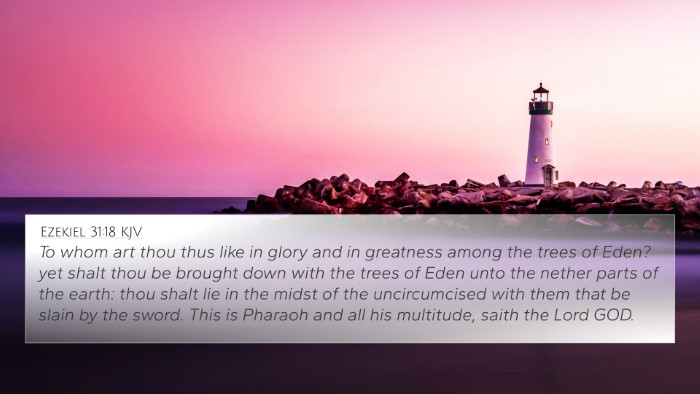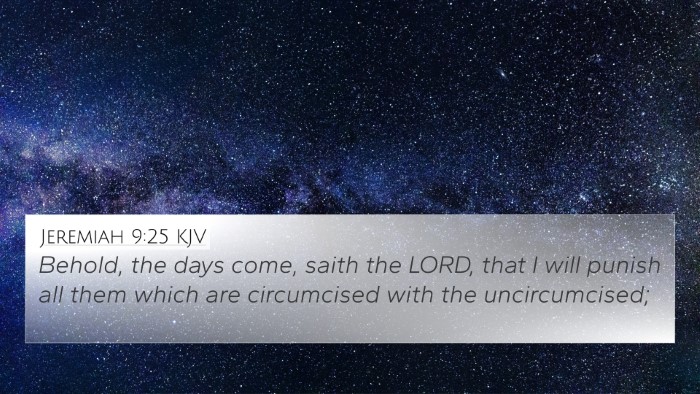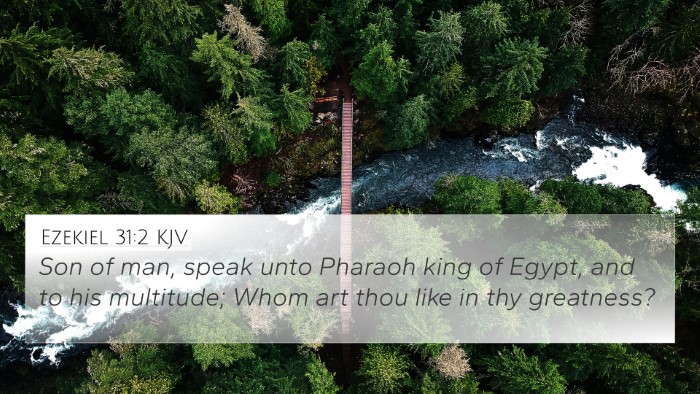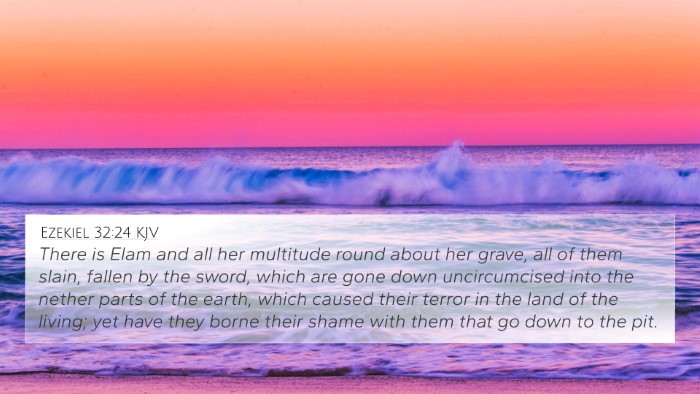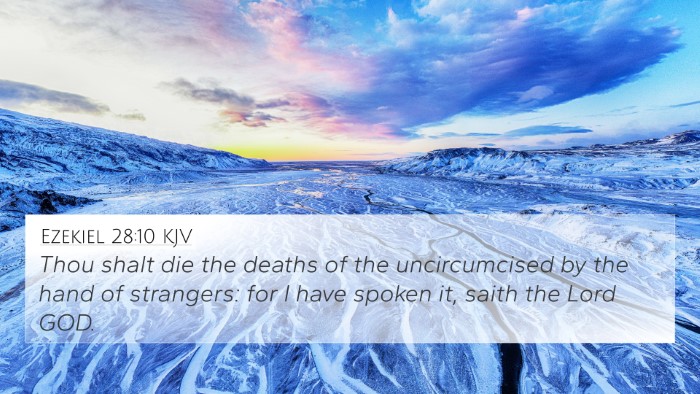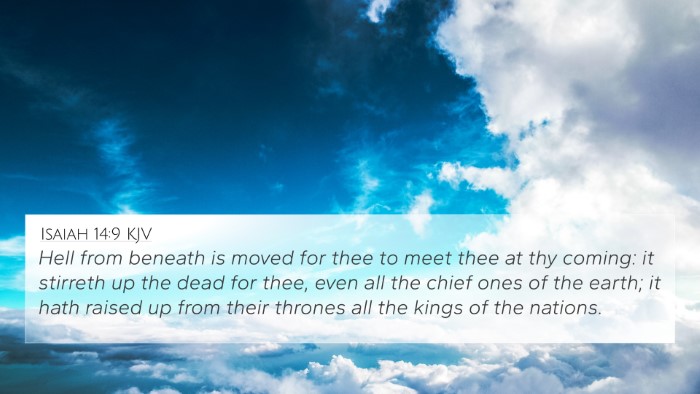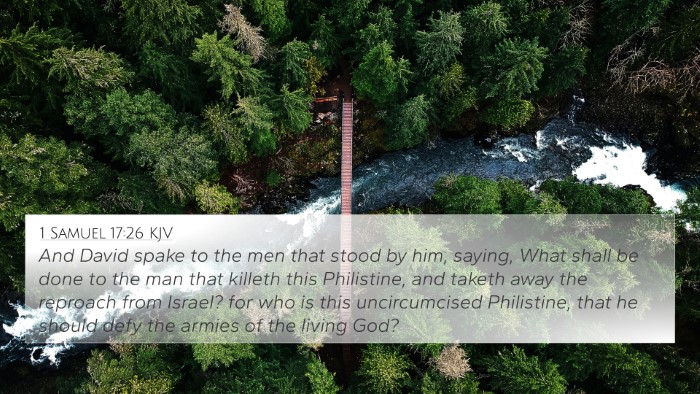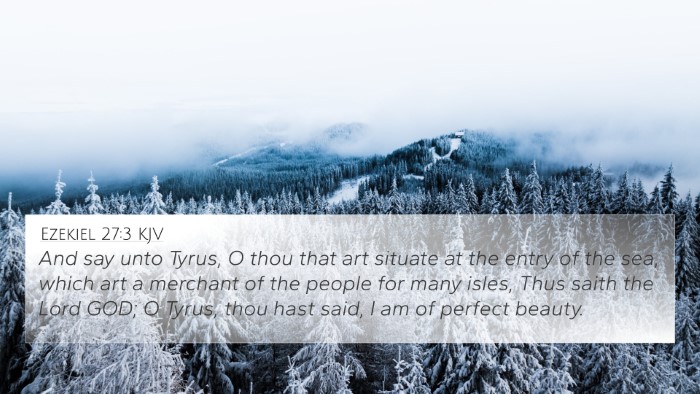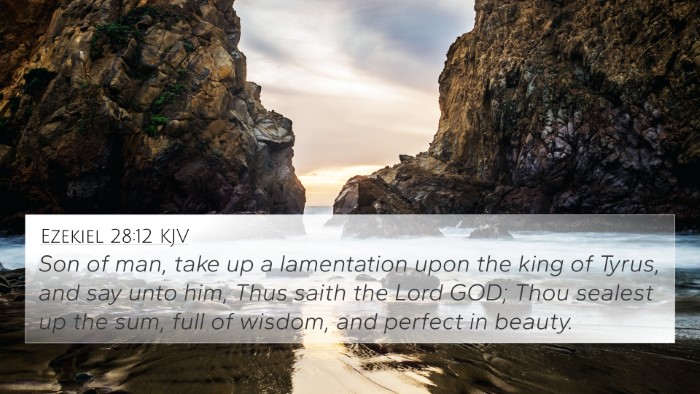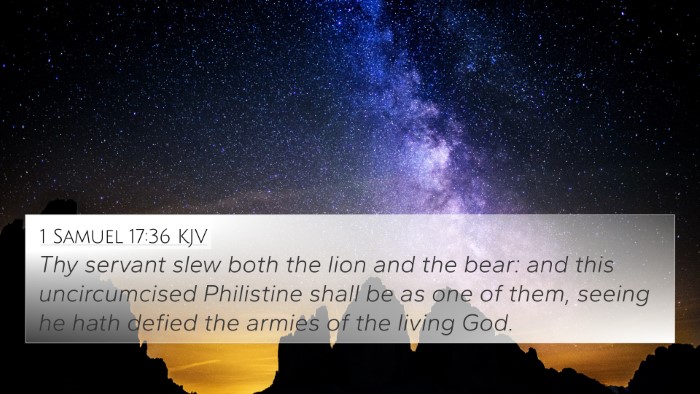Ezekiel 32:19 - Summary and Interpretation
Ezekiel 32:19 states: "Whom dost thou pass in beauty? Go down, and be thou laid with the uncircumcised."
This verse is a part of a larger prophetic lamentation regarding Pharaoh and Egypt, highlighting their downfall and ultimate fate. It is crucial for understanding the themes of pride, judgment, and the stark reality of death, particularly in relation to powerful nations and their rulers. The commentary insights from various public domain sources provide depth to its interpretation and significance.
Meaning and Context
The context of Ezekiel 32 reveals a prophecy delivered during a period of significant turmoil and judgment against Egypt. The phrase "whom dost thou pass in beauty?" is rhetorical, emphasizing the futility of Egypt's former glory in the face of impending judgment.
-
Matthew Henry: He notes that this verse serves as a reminder of Egypt's pride, suggesting that the nation stood in grandeur but is now called to recognize its mortality among the uncircumcised—those outside of God's covenant.
-
Albert Barnes: Barnes emphasizes that the imagery of being laid with the uncircumcised represents a degradation of Egypt's status, illustrating that they will join the rest in death, stripped of their former power and prestige.
-
Adam Clarke: Clarke points out that the verse alludes to judgment, stating that Egypt's beauty in life will not save it from the inevitable fate that awaits, which is a common theme throughout Ezekiel's prophecies.
Thematic Connections with Other Bible Verses
Ezekiel 32:19 can be cross-referenced with several other scriptures, providing a comprehensive understanding of its themes:
- Isaiah 14:9-11: The fallen state of the great and proud, paralleling the judgment observed in Ezekiel.
- Revelation 20:13-14: The ultimate fate of the dead is depicted here, connecting the theme of death and judgment.
- Jeremiah 46:17: A similar sentiment exploring the downfall of Egypt as a nation.
- Ezekiel 30:6-8: Previous discussions of the judgment on Egypt, reinforcing the narrative of impending doom.
- Psalm 82:7: Reflects on mortality and how even great leaders face death.
- Proverbs 16:18: The pride before destruction theme aligns with Egypt's proud stance explored in Ezekiel.
- Philippians 3:19: Discusses the end of those who set their minds on earthly things, similar to the focus on Egypt's earthly pride.
- Matthew 23:12: Jesus speaks of humility and the consequence of pride, connecting to the warning in Ezekiel.
- Romans 6:23: The wages of sin and the inevitable judgment resonate with the context of Ezekiel's message.
- Isaiah 5:14: Reflects on the fate of those who pursue earthly power and glory, similar to the Egyptians' situation.
Conclusion
Ezekiel 32:19 serves as a powerful prophetic declaration concerning the pride and eventual downfall of Egypt. By utilizing comparative Bible verse analysis, one can glean deeper meanings and reflections on God's judgment, the nature of pride, and the universality of death. The connections drawn through these other scriptures enrich our understanding of the timeless themes within the biblical narrative.
Tools for Bible Cross-Referencing
To study Ezekiel 32:19 and its themes further, one can utilize various tools for Bible cross-referencing, such as:
- Bible Concordance
- Bible Cross-Reference Guide
- Cross-Reference Bible Study manuals
- Bible Reference Resources
Finding Cross-References in the Bible
Identifying connections between Old and New Testament texts can significantly enhance your understanding of passages like Ezekiel 32:19. Engaging in cross-referencing Bible study methods facilitates a deeper exploration of similar themes, judgments, and God's overarching narrative throughout scripture.
